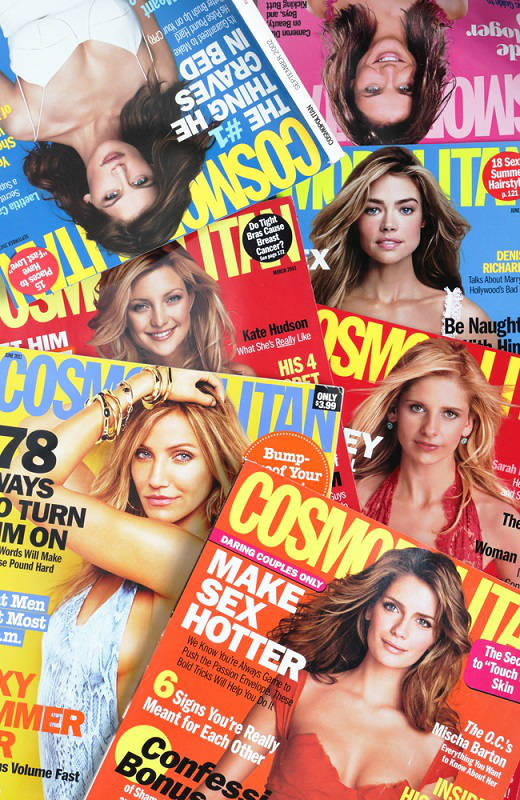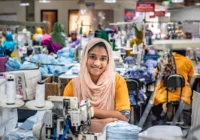At what point does a person get to be a worthy human being rather than carrying “poor” as their label because they can’t afford to look “normal”?
I once booked a connecting flight from Dhaka to Istanbul with a layover in Saudi Arabia. For some reason, it seemed like a good idea.
At the airport, I glanced up from my Kindle only to realize that I had accidentally put myself on a flight of pilgrims, their lips muttering prayers, bound for Mecca.
I like to think I’m progressive when it comes to different kinds of people. I travel a lot, I work in development and I’m familiar with shifting norms.
But when I glanced around as casually as possible, I noticed the broken sandals; the way some people carried plastic bags in lieu of carry-ons.
Bangladesh is not a country known for its wealth. I had just spent ten days ricocheting around Dhaka and the surrounding countryside, open-mouthed in shock at a beggar holding a bag of urine, well water turned black with iron deposits and the overflowing pollution in the capital city’s streets.
Some of the passengers with me were clearly on their first flight. They stumbled through the security line and milled anxiously in the terminal, pulling at the plastic group IDs hung around their necks.
A woman touched my shoulder, asking a question in Bengali, but I could only stare at her missing teeth and shrink back at the tobacco she was chewing.
Many people, I learned after eavesdropping on the loud English conversation of the middle-class couple next to me, had scrimped and saved for this, their first and only trip. Almost everyone had already donned the white ihram — frayed sheets and towels wrapped around their wizened, elderly bodies — in readiness to perform the Muslim pilgrimage, which requires wearing unstitched cloth.
I shrank down in my aisle seat, cringing slightly when someone brushed by me, apparently having lost all of my enlightened notions in the face of real people. It wasn’t until a woman, clutching her canvas bag and limping, touched my shoulder and thrust her boarding card in my direction that I realized she did not understand how to find her seat. She did not understand English, much less how to figure out the number-letter seating system on the plane.
I pointed her and some others to their seats, cringing again at a man who came out of the bathroom trailing water, wondering loudly — the lady next to me helpfully translated — how to squat on the raised toilet seat.
I say this not to paint a picture of Bangladesh’s poverty. Not everyone in Bangladesh is poor. I say this because it was the experience that illustrated, for me, the limits of my own tolerance for the poor.
When “poor” meant an idyllic Nepali village, gurgling Tanzanian babies or the people I interviewed for various projects in Pakistan from the safety of a classroom, I could stand it. I could even cope with squat toilets, “traditional” clothing or chapatis made in a wood fire. When you factored in dental hygiene, confusion or bathrooms drenched in water because people were unused to toilet paper, my tolerance apparently came to an end.
And tolerance is the correct word. I tolerate poverty. I cringe at the ugliness of it personified just like everyone else.
We all know the idea of beauty privilege — attractive men and women get more opportunities and more money. People are usually nicer to them, too. We’ve extensively discussed unrealistic expectations for women. We even know about accent and white skin bias in many parts of the world, whether we choose to accept it or not.
But these are binaries in a world that assumes that everyone is already our standard of “normal” or, at the very least, “acceptable.”
What I wondered on that flight was how well I understood the privilege of being seen as a normal human being because I didn’t look poor.
I assumed my personal definition of “acceptable” was generous: It included various accents, various skin colors, various customs and traditions because I’m not American by birth and I have brown skin. I allowed many groups of people to have nuance and tell their stories, and I avoided labeling whenever possible. Or so I thought.
But I found it ugly when faced with people who fell outside of my definitions. I saw a mass, not individuals — bodies and feelings outside my personal “limits of acceptability.”
Ugliness can be used as a political term to exclude and dehumanize; natural black hair, dark brown skin, varied body types, people with tattoos and piercings have all experienced this kind of exclusion.
It’s the reason we have stories about beasts turning into handsome princes, why witches always have warts, why we praise Mother Teresa and the Statue of Liberty — unflinching acceptance of the “huddled masses.” It’s part of the reason we use blanket terms like “refugee” or “internally displaced person” or “laborers” for people who we see as an ugly mass instead of individuals.
As Michael Apple says: “I use the word ‘refugee’ with great hesitancy, for words like refugee can do damage to reality and to one’s humanity. They were people who cannot be adequately described by that one word — refugee. These were teachers, builders, nurses, shop owners, store clerks, farmers, children, fathers, mothers, grandparents.”
It seems that, as humans, we instinctively strip those we feel are politically ugly of their complexity and value. We don’t necessarily require the patina of wealth, but clothing, bodies, mannerisms — those must be what we deem “normal.” The dark-skinned “other” is the most susceptible to this, as Jamaica Kincaid points out when she paints white tourists as ugly in A Small Place.
Where do our classifications go when it’s not about how genetically gifted a girl is, but whether she has access to the same kind of toiletries that I can buy? What if she couldn’t wear beautiful red-soled Louboutins because she has to walk kilometers on dusty roads every day? What if her culture’s definitions of beauty are not something weird or exotic to her, like they are to Cosmopolitan magazine?
At what point does she get to be a worthy human being rather than carrying “poor” as her label because she cannot afford to look “normal”?
Should we react with pity? With fear? With disgust? Should we be disgusted with ourselves for our reaction?
And should we then judge the nouveau riche in developing countries who purchase the designer labels and ostentatious symbols of wealth in order to be accepted into our exclusive “worthy” club?
When we arrived in Saudi Arabia, the heavily made-up security ladies ushered everyone through lines, patting people down and shoving around those who didn’t understand directions in Arabic. They were nicer to me.
They were also nicer to the people on my Turkish Airlines flight to Istanbul, all of whom had their teeth and wore gleaming white robes. Many also wore light perfume or carried expensive handbags. No one needed help to their seats, and everyone was relaxed and jabbing away at the entertainment screens.
Ashamed, I found myself relaxing, too.
The views expressed in this article are the author’s own and do not necessarily reflect Fair Observer’s editorial policy.
Photo Credit: Leva Vincer / Emka74 / Shutterstock.com
 We bring you perspectives from around the world. Help us to inform and educate. Your donation is tax-deductible. Join over 400 people to become a donor or you could choose to be a sponsor.
We bring you perspectives from around the world. Help us to inform and educate. Your donation is tax-deductible. Join over 400 people to become a donor or you could choose to be a sponsor.
Support Fair Observer
We rely on your support for our independence, diversity and quality.
For more than 10 years, Fair Observer has been free, fair and independent. No billionaire owns us, no advertisers control us. We are a reader-supported nonprofit. Unlike many other publications, we keep our content free for readers regardless of where they live or whether they can afford to pay. We have no paywalls and no ads.
In the post-truth era of fake news, echo chambers and filter bubbles, we publish a plurality of perspectives from around the world. Anyone can publish with us, but everyone goes through a rigorous editorial process. So, you get fact-checked, well-reasoned content instead of noise.
We publish 2,500+ voices from 90+ countries. We also conduct education and training programs
on subjects ranging from digital media and journalism to writing and critical thinking. This
doesn’t come cheap. Servers, editors, trainers and web developers cost
money.
Please consider supporting us on a regular basis as a recurring donor or a
sustaining member.
Will you support FO’s journalism?
We rely on your support for our independence, diversity and quality.








Comment